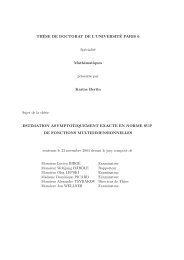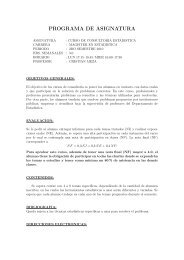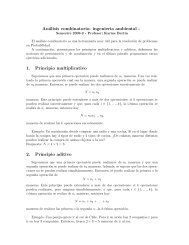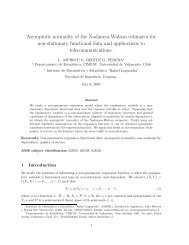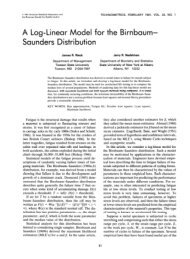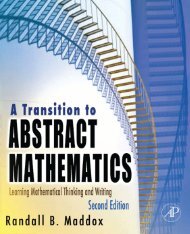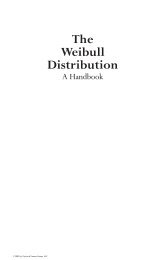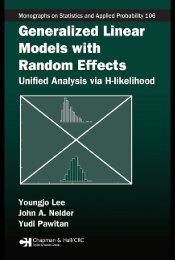- Page 1 and 2:
High Frequency Financial Econometri
- Page 3 and 4:
Prof. Luc Bauwens CORE Voie du Roma
- Page 5:
vi Contents Intraday stock prices,
- Page 8 and 9:
2 L. Bauwens et al. component nicel
- Page 10 and 11:
4 L. Bauwens et al. but provides al
- Page 13 and 14:
Luc Bauwens . Dagfinn Rime . Genaro
- Page 15 and 16:
Exchange rate volatility and the mi
- Page 17 and 18:
Exchange rate volatility and the mi
- Page 19 and 20:
Exchange rate volatility and the mi
- Page 21 and 22:
Exchange rate volatility and the mi
- Page 23 and 24:
Exchange rate volatility and the mi
- Page 25 and 26:
Exchange rate volatility and the mi
- Page 27 and 28:
Exchange rate volatility and the mi
- Page 29 and 30:
Exchange rate volatility and the mi
- Page 31 and 32:
Exchange rate volatility and the mi
- Page 33 and 34:
Exchange rate volatility and the mi
- Page 35:
Exchange rate volatility and the mi
- Page 38 and 39: 32 K. Bien et al. Although economet
- Page 40 and 41: 34 K. Bien et al. 2.1 Copula functi
- Page 42 and 43: 36 K. Bien et al. and x k t ≡ (xk
- Page 44 and 45: 38 K. Bien et al. Fig. 3 Multivaria
- Page 46 and 47: 40 K. Bien et al. Bivariate model s
- Page 48 and 49: 42 K. Bien et al. deviation 0.0099,
- Page 50 and 51: 44 K. Bien et al. - Set ˆzt = Âxt
- Page 52 and 53: 46 K. Bien et al. % Frequency −0.
- Page 54 and 55: 48 K. Bien et al. References Amilon
- Page 56 and 57: 50 1 Introduction A. Escribano and
- Page 58 and 59: 52 A. Escribano and R. Pascual Jang
- Page 60 and 61: 54 A. Escribano and R. Pascual the
- Page 62 and 63: 56 The generating processes of mark
- Page 64 and 65: 58 with AtðLÞ ¼ 0 B @ 1 ð ÞAab
- Page 66 and 67: 60 A. Escribano and R. Pascual cros
- Page 68 and 69: 62 Hasbrouck (1991). The system is
- Page 70 and 71: 64 unitary seller-initiated shock (
- Page 72 and 73: 66 6.1 Estimation of the baseline m
- Page 74 and 75: Table 2 The base-line VEC model for
- Page 76 and 77: 70 Table 3 Simulation of the base-l
- Page 78 and 79: 72 revert towards narrow levels. As
- Page 80 and 81: Table 5 Impulse-response functions
- Page 82 and 83: 76 We also show that NYSE buyer-ini
- Page 84 and 85: 78 As 0 < a m < 1; L ð Þ ¼ 1 a m
- Page 86 and 87: 80 NYSE 2000 Stocks AOL America Onl
- Page 90 and 91: 84 1 Introduction S. Frey, J. Gramm
- Page 92 and 93: 86 develops the empirical methodolo
- Page 94 and 95: Table 1 Sample descriptives Company
- Page 96 and 97: 90 comparability across stocks, we
- Page 98 and 99: 92 subtracting the deviations from
- Page 100 and 101: 94 market order distribution that c
- Page 102 and 103: 96 Table 2 First stage GMM results
- Page 104 and 105: Table 4 First stage GMM results bas
- Page 106 and 107: 100 S. Frey, J. Grammig quotes on e
- Page 108 and 109: 102 S. Frey, J. Grammig approximate
- Page 110 and 111: 104 To obtain the estimates in the
- Page 112 and 113: 106 Hence, using the liquidity stat
- Page 114 and 115: 108 In the main text we discuss the
- Page 117 and 118: Pierre Giot . Joachim Grammig How l
- Page 119 and 120: How large is liquidity risk in an a
- Page 121 and 122: How large is liquidity risk in an a
- Page 123 and 124: How large is liquidity risk in an a
- Page 125 and 126: How large is liquidity risk in an a
- Page 127 and 128: How large is liquidity risk in an a
- Page 129 and 130: How large is liquidity risk in an a
- Page 131 and 132: How large is liquidity risk in an a
- Page 133 and 134: How large is liquidity risk in an a
- Page 135 and 136: How large is liquidity risk in an a
- Page 137: How large is liquidity risk in an a
- Page 140 and 141:
134 A. D. Hall, N. Hautsch In this
- Page 142 and 143:
136 includes order book variables,
- Page 144 and 145:
138 An important determinant of liq
- Page 146 and 147:
140 The innovation term ei is compu
- Page 148 and 149:
Table 1 Order book characteristics
- Page 150 and 151:
144 data covering the normal tradin
- Page 152 and 153:
146 Table 3 Descriptive statistics
- Page 154 and 155:
Table 4 Fully specified ACI models
- Page 156 and 157:
Table 4 (continued) BHP NAB NCP TLS
- Page 158 and 159:
Table 5 ACI models without dynamics
- Page 160 and 161:
Table 5 (continued) BHP NAB NCP TLS
- Page 162 and 163:
Table 6 ACI models without covariat
- Page 164 and 165:
Table 6 (continued) BHP NAB NCP TLS
- Page 166 and 167:
160 specification which includes or
- Page 168 and 169:
162 5.2.5 The impact of the bid-ask
- Page 170 and 171:
164 contrast to those of Pascual an
- Page 173 and 174:
Roman Liesenfeld . Ingmar Nolte . W
- Page 175 and 176:
Modelling financial transaction pri
- Page 177 and 178:
Modelling financial transaction pri
- Page 179 and 180:
Modelling financial transaction pri
- Page 181 and 182:
Modelling financial transaction pri
- Page 183 and 184:
Modelling financial transaction pri
- Page 185 and 186:
Modelling financial transaction pri
- Page 187 and 188:
Modelling financial transaction pri
- Page 189 and 190:
Modelling financial transaction pri
- Page 191 and 192:
Modelling financial transaction pri
- Page 193 and 194:
Modelling financial transaction pri
- Page 195 and 196:
Modelling financial transaction pri
- Page 197 and 198:
Modelling financial transaction pri
- Page 199 and 200:
Modelling financial transaction pri
- Page 201 and 202:
Modelling financial transaction pri
- Page 203:
Modelling financial transaction pri
- Page 206 and 207:
200 W. B. Omrane, H. V. Oppens anal
- Page 208 and 209:
202 W. B. Omrane, H. V. Oppens of s
- Page 210 and 211:
204 The extrema detection method ba
- Page 212 and 213:
206 price 0.8565 0.8575 0.8585 0.85
- Page 214 and 215:
208 We distinguish three possible c
- Page 216 and 217:
210 originates. The most active tra
- Page 218 and 219:
212 Table 2 Predictability of the c
- Page 220 and 221:
214 6 Conclusion Using 5-min euro/d
- Page 222 and 223:
216 where σk is the standard devia
- Page 224 and 225:
218 If we meet a particular case su
- Page 226 and 227:
220 C.5. Triple bottom (TB) TB is c
- Page 228 and 229:
222 References W. B. Omrane, H. V.
- Page 231 and 232:
Juan M. Rodríguez-Poo · David Ver
- Page 233 and 234:
Semiparametric estimation for finan
- Page 235 and 236:
Semiparametric estimation for finan
- Page 237 and 238:
Semiparametric estimation for finan
- Page 239 and 240:
Semiparametric estimation for finan
- Page 241 and 242:
Semiparametric estimation for finan
- Page 243 and 244:
Semiparametric estimation for finan
- Page 245 and 246:
Semiparametric estimation for finan
- Page 247 and 248:
Semiparametric estimation for finan
- Page 249 and 250:
Semiparametric estimation for finan
- Page 251 and 252:
Semiparametric estimation for finan
- Page 253 and 254:
Semiparametric estimation for finan
- Page 255 and 256:
Semiparametric estimation for finan
- Page 257:
Semiparametric estimation for finan
- Page 260 and 261:
254 between price changes and durat
- Page 262 and 263:
256 simply aggregated. Even after a
- Page 264 and 265:
258 is to make use of the fact that
- Page 266 and 267:
260 together with the restrictions
- Page 268 and 269:
Table 3 Estimated probabilities of
- Page 270 and 271:
264 A. S. Tay, C. Ting More interes
- Page 272 and 273:
Table 4 Estimated probabilities of
- Page 274 and 275:
268 Acknowledgements Tay gratefully
- Page 276 and 277:
270 This paper explores the effect
- Page 278 and 279:
272 contrast, price responses to po
- Page 280 and 281:
274 Fig. 1 Continuous line is the T
- Page 282 and 283:
276 the β’s can form a convex sh
- Page 284 and 285:
278 fixing some intervals around th
- Page 286 and 287:
280 . That is for a given absolute
- Page 288 and 289:
282 30 25 20 15 10 5 CC UNEMW ISM U
- Page 290 and 291:
Appendix Table A1 Consumer confiden
- Page 292 and 293:
Table A3 Non-farm payrolls • ✓
- Page 294 and 295:
Table A5 Weekly unemployment claims
- Page 296 and 297:
290 Table A8 Retail sales • ✓ 1
- Page 298 and 299:
292 Table A12 GDP, BI, TB and PI Re
- Page 300 and 301:
294 V. Voev with the problem of how
- Page 302 and 303:
296 V. Voev 2.1 A sample covariance
- Page 304 and 305:
298 V. Voev Using the equicorrelate
- Page 306 and 307:
300 V. Voev where �kl(t) is the (
- Page 308 and 309:
302 V. Voev where hkl,k ′ l ′ i
- Page 310 and 311:
304 V. Voev is 1.9%. From the daily
- Page 312 and 313:
306 V. Voev ACF ACF ACF 0.5 0.5 0.5
- Page 314 and 315:
308 V. Voev autocorrelated. Indeed,
- Page 316 and 317:
310 V. Voev 5 Conclusion Table 2 Ro
- Page 318:
312 V. Voev Engle R (1982) Autoregr



